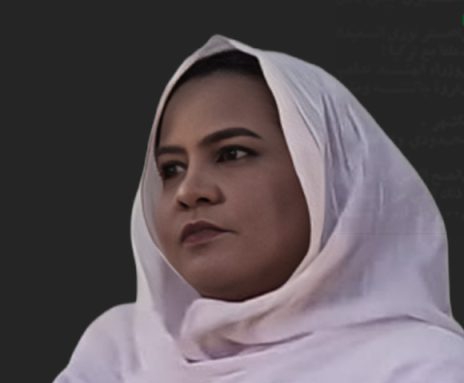Pre-Return Questions (1-2)

By: Omaima Abdullah
Here, I attempt to think out loud with others. Many Sudanese families are now preparing to return, some before the holy month of Ramadan and others after. Institutions are trying to restore their facilities and recall their employees as much as possible, while state governments are striving to address deficiencies in basic services.
The rapid collapse of the Janjaweed and mercenaries—thanks to the well-executed military strategy of the Sudanese Armed Forces—has brought joy to Sudanese hearts, like health returning to a sick body. The longing for home has been rekindled, and dreams of returning to warm houses have awakened.
Sudanese people are now busy gathering whatever they can transport back to their cities, which were emptied and destroyed by the militias. Youths have already begun returning ahead of their families to participate in cleanup efforts.
Some political factions are also preoccupied with post-war government formation, securing their share to prevent it from being devoured by the “lion.” Other parties are busy patching up internal divisions—perhaps to increase their stake—while some are fighting constitutional amendments proposed by the leadership to suit their interests. Meanwhile, others are trying to raise awareness about the realities awaiting society upon return.
The Reality of Return
Communities across Sudan—rural and urban—will be confronted with a shocking reality:
1. Total destruction of infrastructure
2. Social fragmentation, loss of trust, and increased suspicion among people
For many, the shock of returning will be seeing the devastation inflicted on streets, homes, neighborhood entrances, schools, and hospitals. Many houses have been stripped of everything—life savings, jewelry, furniture, appliances, even electrical wiring and cables—leaving them completely empty.
The devastation will be particularly cruel for those who had recently furnished their homes with their life’s earnings, only to find them looted and destroyed. Many will return with broken hearts, carrying the burdens of war, displacement, humiliation, and financial ruin, only to be met with further losses and the stench of mercenary corpses still lingering in the air.
Children will have to bear the responsibility of helping their parents cope with this overwhelming reality.
Families will return forever changed—some missing loved ones who succumbed to illness, shock, forced displacement, or direct violence. Fathers, mothers, siblings, and sons—soldiers and civilians alike—have perished. Even amid tears of joy, a deep, hidden sorrow will accompany their return.
As for those who never left, they endured a different kind of suffering—violence, humiliation, bombings, anxiety, and depression. Some were forced to interact with the filthy mercenary militias, and no one who has shaken hands with the devil emerges unscathed. No matter how strong they were, the memories of these experiences will weigh on them like Mount Uhud, marking the rest of their lives.
The Deep-Rooted Hatred
How did such dark hatred and an insatiable thirst for destruction grow within the Janjaweed and militias? Were these people really among us, walking our streets, sharing our meals?
Sudanese society has undergone major transformations, some of which may be irreversible. Just as famine alters a nation’s eating habits, sudden and brutal wars shatter trust within a society. Relationships become distorted, and those who have suffered immense trauma often develop new, unrecognizable traits—anger, vengeance, and the urgency to reclaim justice without relying on slow legal systems.
A Post-War Society Divided
Tensions will rise upon return, not only between communities but also within neighborhoods.
Families who collaborated with the militias will be forced to flee, fearing retaliation—and some may never be able to return.
Who assisted the mercenaries in looting, stealing, and humiliating their own people?
Who acted as a guide for the militias, pointing them toward their wealthy neighbors’ homes?
Who used the mercenaries to settle old grudges?
Sudanese society will be divided into two groups:
1. Those seeking to reclaim their stolen rights
2. Those who committed crimes against their neighbors, friends, and relatives
And those who lost everything will never forget.
The Urgent Need for Government Intervention
If the Sudanese state does not take action now, the complications of return will be overwhelming for society.
To be continued, Insha’Allah.
(As published in Al-Muhaqqiq)



